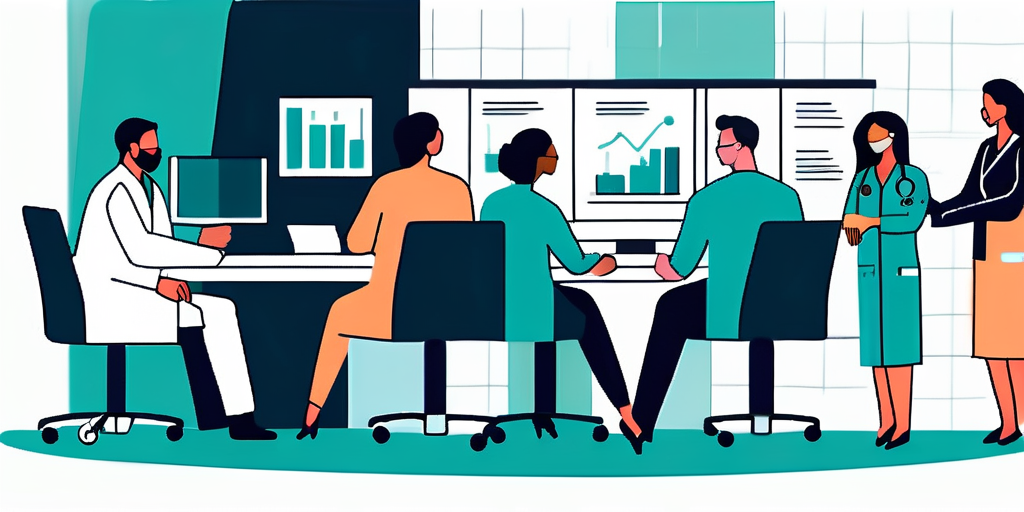Quick CV Dropoff
Send us your CV

Are you looking to navigate the complex world of clinical development recruitment? Look no further! In this comprehensive guide, we will walk you through everything you need to know to find the right candidates, overcome challenges, and implement effective strategies for hiring in the clinical development industry. Whether you're an HR professional or a hiring manager, this guide will equip you with the knowledge and tools to recruit top talent in the field of clinical development.
Before we dive into the specifics of clinical development recruitment, it's essential to understand the role of clinical development in healthcare. Clinical development refers to the process of conducting research and trials to evaluate the safety and efficacy of new drugs, treatments, and medical devices. It plays a crucial role in advancing medical knowledge and improving patient care.

Within clinical development, there are several key skills that candidates should possess. Strong analytical and problem-solving skills are essential, as clinical development professionals need to analyze complex data and make informed decisions. Additionally, excellent communication and teamwork abilities are vital, as they often collaborate with various stakeholders, including physicians, researchers, and regulatory authorities.
Let's delve deeper into the world of clinical development recruitment. As the demand for skilled professionals in this field continues to rise, organizations are implementing innovative strategies to attract and retain top talent. One such strategy is the use of advanced technology in the recruitment process.
With the advent of artificial intelligence (AI) and machine learning, recruiters can now leverage these technologies to streamline candidate sourcing, screening, and selection. AI-powered algorithms can analyze vast amounts of data to identify candidates with the right skills and experience, saving recruiters valuable time and effort. Moreover, machine learning algorithms can continuously learn and improve, enhancing the accuracy and efficiency of the recruitment process over time.
Another aspect of clinical development recruitment that deserves attention is the importance of diversity and inclusion. In recent years, there has been a growing recognition of the value that diverse perspectives bring to the field of clinical development. Studies have shown that diverse teams are more innovative, make better decisions, and achieve better outcomes.
Organizations are now actively seeking to diversify their clinical development teams by implementing inclusive hiring practices. This includes actively recruiting candidates from underrepresented groups, providing equal opportunities for advancement, and fostering a culture of inclusivity. By embracing diversity, organizations can tap into a wider pool of talent and drive innovation in clinical development.
Now that we have a foundation in clinical development recruitment, let's explore the recruitment process itself. Identifying the right candidates is critical to building a successful clinical development team. This involves conducting extensive candidate searches, leveraging both traditional and digital recruitment channels, and utilizing targeted job advertisements.
Once potential candidates have been identified, interviewing techniques specific to clinical development roles should be employed. These interviews should assess a candidate's technical knowledge, problem-solving abilities, and their capacity to work in high-pressure environments. Additionally, it is crucial to evaluate a candidate's understanding of ethical standards and regulatory compliance, as these aspects play a significant role in clinical development.
When it comes to conducting candidate searches, recruiters in clinical development often employ a multi-faceted approach. Utilizing a combination of traditional methods, such as posting job openings on industry-specific job boards and attending career fairs, as well as digital methods, such as searching through online professional networks and social media platforms. By casting a wide net, recruiters increase their chances of finding the most qualified candidates for clinical development positions.
Furthermore, targeted job advertisements are a key component of the recruitment process in clinical development. These advertisements are carefully crafted to attract individuals with the specific skills and experience required for the role. They highlight the unique aspects of the position, such as the opportunity to contribute to groundbreaking medical research or work with cutting-edge technology. By tailoring the job advertisements to the desired candidate profile, recruiters can attract individuals who are genuinely interested in and well-suited for clinical development roles.
Once potential candidates have been identified, the interviewing process takes center stage. In clinical development, interviews go beyond the standard questions about qualifications and experience. Recruiters delve deep into a candidate's technical knowledge, assessing their understanding of key concepts and methodologies relevant to the field. They also evaluate problem-solving abilities, as clinical development often involves overcoming complex challenges and making critical decisions under pressure.
Recruiters in clinical development also pay close attention to a candidate's ability to work in high-pressure environments. The nature of clinical development work often involves tight deadlines, strict regulations, and the need for meticulous attention to detail. Therefore, it is essential to assess a candidate's resilience, adaptability, and ability to thrive in a fast-paced and demanding setting.
Lastly, ethical standards and regulatory compliance are of utmost importance in clinical development. Recruiters make it a priority to evaluate a candidate's understanding of these crucial aspects. They may ask hypothetical scenarios to gauge how a candidate would handle ethical dilemmas or inquire about their familiarity with regulatory guidelines and requirements. Ensuring that candidates have a strong grasp of these fundamental principles is vital to maintaining the integrity and safety of clinical development projects.
Despite the importance of clinical development recruitment, there are several challenges that organizations face in attracting and retaining top talent. Skill shortages in specific areas of clinical development can pose significant obstacles. For instance, the field of oncology research often experiences a shortage of skilled professionals due to the complex nature of cancer studies and the need for specialized knowledge in this area. To address this challenge, organizations need to adopt proactive strategies to counter these skill gaps, such as investing in training programs and partnering with educational institutions to nurture future talent.
Addressing high turnover rates is another challenge in clinical development recruitment. The competitive nature of the industry and demanding workloads can lead to burnout and job dissatisfaction among clinical researchers and professionals. Long hours spent in the lab or conducting clinical trials can take a toll on individuals, affecting their overall well-being and job satisfaction. To combat this, organizations should focus on creating a positive work culture that promotes employee well-being and mental health. This can be achieved by implementing flexible work arrangements, providing support for work-life balance, and offering opportunities for career growth and development. However, candidates' priorities can change from year to year, we research and outline what is important to jobseekers each year in our Life Sciences Salary Guides to ensure you are retaining your top talent.
Moreover, the global nature of clinical development recruitment adds another layer of complexity to the hiring process. Clinical trials and research studies often require collaboration between multiple countries and diverse teams of experts. This necessitates organizations to navigate through various regulatory frameworks, cultural differences, and language barriers. To overcome these challenges, organizations can establish partnerships with local research organizations and leverage technology to facilitate seamless communication and collaboration across borders.
To overcome these challenges, organizations must implement effective recruitment strategies. Building a strong employer brand is crucial in attracting top talent in the clinical development field. Highlighting the organization's values, mission, and commitment to patient care can significantly impact candidate perceptions and attract those aligned with the organization's vision.
Leveraging recruitment technologies can also enhance the efficiency and effectiveness of the clinical development recruitment process. Applicant tracking systems, artificial intelligence tools, and online assessments can streamline candidate sourcing, evaluation, and selection, saving time and resources.
Looking ahead, there are exciting trends and advancements on the horizon for clinical development recruitment. Artificial intelligence is playing an increasingly significant role in candidate sourcing and screening, allowing recruiters to identify the most suitable candidates more efficiently. Additionally, the rise of remote clinical development roles is enabling organizations to access a broader talent pool and accommodate flexible working arrangements.
As the field of clinical development continues to evolve, recruitment strategies must adapt. Let us do the hard work for you. As expert recruiters, we can help you find the best candidates. Contact us today!